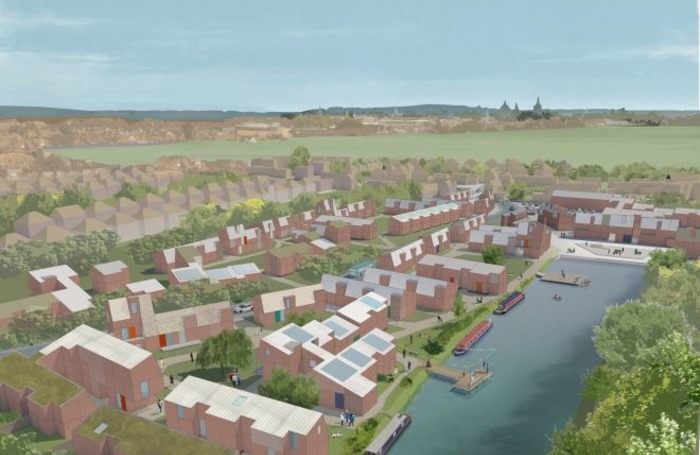Social purpose projects can be a rewarding source of work. It is a burgeoning area that many young practices are interested in. However, such projects require the support of local partners and money, usually via grant funding, and this is not something that can readily be picked up on an architecture course.
Transition by Design (TbD) is a practice that is spearheading community-led projects in its home city of Oxford. The success of the seven-strong practice to date has been helped significantly by its structure: it is a hybrid workers’ co-operative and Community Interest Company (CIC).
The key, explains founder and director Andy Edwards, is that it is constituted as a non-profit company. Limited by guarantee, it is non-profit making and unable to distribute dividends to partners or shareholders. This, Edwards states, has been invaluable in winning essential grants and the patronage of Oxford City Council.
"It makes all the difference," Edwards explains. "The council, for instance, can be more open about funding and more comfortable about offering sites, which is an option it would not consider with commercial developers. I think the council finds having non-profit partnership options refreshing."
It has certainly helped them win trust and a good reputation. TbD’s involvement in Oxford’s community enterprise and housing self-help projects has built up credibility with Oxford City Council. When the council was looking to partner with homeless charity St Mungo’s to set up a £1.3m rough sleeper hub, it turned to TbD.
Their most exciting current project is a pilot scheme for the conversion of vacant council-owned garages into five flats for affordable rented housing built to Passivhaus standards.

TbD instigated the project and successfully applied to the government’s Community Housing Fund for money to work up the scheme to the planning stage. The £163m fund provides grants for community-led housing projects. It is operating and open for applications until the end of 2019 and may be extended into 2020. As far as Edwards is aware, TbD are as yet the only architects' practice to have benefited from it: many practices appear to be unaware that the fund exists.
Edwards estimates that around two-thirds of the practice’s workload is self-driven, including what can be loosely termed 'social justice research'. Its more traditional work includes acting as technical advisors to formative community housing groups: plenty of "sustained RIBA Stage 0 stuff," as he puts it.
There are dozens of sources for research and feasibility grants out there, Edwards maintains. The practice has managed to secure funding from social justice foundations in the US. Its three-year Homemaker Oxford project is one of them, looking at how alternative models of housing, such as accessing empty and under-used buildings, can help those in extreme housing need.
TbD was also instigator and one of the founding partners of Makespace Oxford CIC, an affordable ‘meanwhile’ workspace hub housed in a building owned by Oxford University’s Wadham College that will be redeveloped. Makespace now plans to roll out similar rapid retrofits of empty and underused spaces across the city for creative start-ups and social enterprises.
TbD has an egalitarian practice model. All decisions are taken democratically, pay rates are flat across the practice, and any profits have to be reinvested, although Edwards points out that higher practice income can also be turned into higher wages: they are architects, not martyrs.

"If you want to be part of changing the system, there is real value in walking the walk and setting up a practice as a community interest company," he affirms. For architects who think this might be a step too far, he adds a qualifier: "It does not have to be the only thing you do…"
For more information, why not attend the 'Creating a process for community-led design' session at the Guerrilla Tactics CPD day on Wednesday 6 November 2019 at the RIBA at 66 Portland Place, London W1B 1AD.
Tickets are now on sale, with discounted early bird rates available until 1 September 2019.
Thanks to Andy Edwards, director, Transition by Design.
Text by Neal Morris. This is a Professional Feature edited by the RIBA Practice team. Send us your feedback and ideas
RIBA Core Curriculum Topic: Architecture for social purpose.
As part of the flexible RIBA CPD programme, Professional Features count as microlearning. See further information on the updated RIBA CPD Core Curriculum and on fulfilling your CPD requirements as an RIBA Chartered Member.
Posted on 15 August 2019.









